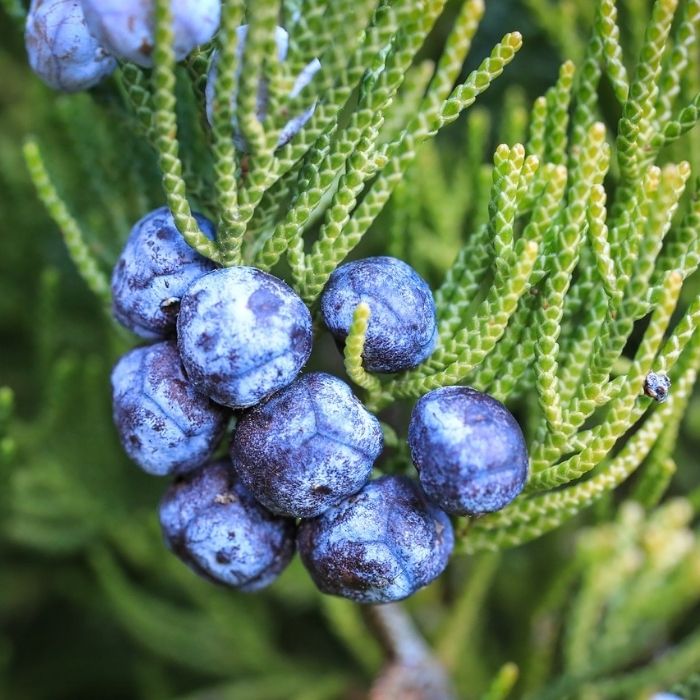The Comprehensive Guide to Juniper Berries
Juniper berries, the small, aromatic cones of the juniper tree, have long been cherished for their diverse applications. Not only are they valuable in culinary and medicinal contexts, but they also have a rich cultural history. In this article, we explore everything you need to know about these remarkable berries, ensuring a deeper appreciation for their significance.
What Are Juniper Berries?
Juniper berries are not true berries but fleshy seed cones from the juniper tree (Juniperus communis). These small, blue-black cones stand out because of their intense aroma and slightly bittersweet, piney flavor. Due to their unique profile, they are widely used in both cooking and traditional medicine.
Historical Importance of Juniper Berries
The legacy of juniper berries stretches back thousands of years. For example, ancient Egyptians used them for embalming rituals and medicinal remedies. Similarly, the Greeks and Romans incorporated them into their diets and treatments for digestive issues. Over time, Native Americans adopted Juniper Berry for curing infections and seasoning their dishes. Even today, their significance remains intact, blending historical practices with modern-day uses.
Culinary Applications of Juniper Berries
A Unique Spice for Flavorful Dishes
Juniper berries are widely recognized for their ability to elevate savory dishes. For instance, they complement game meats such as venison, duck, and wild boar. When crushed, the berries release essential oils that add depth to marinades, stews, and sauces. Therefore, they are a favorite among chefs looking to create memorable meals.
The Essence of Gin
Perhaps the most iconic use of Juniper Berry lies in the production of gin. Without a doubt, their distinctive flavor defines this popular spirit. Furthermore, distillers often pair Juniper Berry with other botanicals to craft unique blends that cater to diverse tastes.
Seasonal Treats and Beverages
Beyond savory dishes, juniper berries shine in baking and beverages. They are often included in bread recipes and spiced cakes for a fragrant touch. In addition, they add warmth to mulled wine and herbal teas, making them perfect for cozy winter evenings.
Health Benefits of Juniper Berries
Packed with Antioxidants
One of the primary health benefits of juniper berries is their high antioxidant content. These compounds help reduce oxidative stress, which in turn lowers the risk of chronic diseases. Consequently, incorporating Juniper Berry into your diet can have protective health effects.
Promotes Digestive Wellness
Juniper berries are known for their carminative properties, which aid digestion. They help alleviate bloating, reduce gas, and stimulate the secretion of digestive enzymes. As a result, they are often used in natural remedies for stomach discomfort.
Natural Diuretic
Another noteworthy benefit of Juniper Berry is their ability to act as a diuretic. This property helps the body eliminate excess fluids, which can reduce swelling and support kidney health.
Fights Microbial Infections
Research has shown that Juniper Berry possess antimicrobial properties. Because of this, they are effective against various bacteria and fungi. Historically, they have been used to treat skin infections and minor wounds.
How to Incorporate Juniper Berries
Preparation and Storage Tips
To maximize their flavor, Juniper Berry should be lightly crushed before use. This releases their essential oils and enhances their aroma. It’s also important to store them in airtight containers away from light and moisture to maintain their freshness.
Herbal Teas and Infusions
For a soothing drink, steep crushed Juniper Berry in boiling water for about 10 minutes. Not only does this tea promote digestion, but it also acts as a gentle detoxifier.
Essential Oil Applications
Juniper berry essential oil is widely used in aromatherapy. It has calming and purifying effects when diffused. Additionally, when diluted with a carrier oil, it can be applied topically to soothe muscle aches and promote skin health.
Growing and Harvesting Juniper Berry
Ideal Growing Conditions
Juniper trees thrive in well-drained soil and sunny locations. They are highly adaptable, tolerating both temperate and arid climates. Therefore, they are an excellent addition to diverse gardens.
Harvesting Techniques
Juniper berries typically take two to three years to mature. When they reach a deep blue or purple color, they are ready for harvest. Shaking the branches gently over a cloth is the best way to collect ripe berries without damaging the tree.
Precautions and Considerations
Although juniper berries offer numerous benefits, they should be consumed in moderation. Excessive intake may cause kidney irritation, especially in individuals with pre-existing kidney conditions. Additionally, pregnant women are advised to avoid Juniper Berry due to potential risks.
Where to Find Juniper Berries
You can purchase Juniper Berry at specialty spice stores, health food markets, or online retailers. Opting for organic varieties ensures the highest quality and taste.
Conclusion
Juniper berries are a true treasure of nature, offering an array of uses and benefits. Whether enhancing culinary creations, supporting health, or serving as a key ingredient in gin, they are remarkably versatile. Moreover, their historical and cultural significance adds to their charm. By incorporating these berries into your lifestyle, you can enjoy both their flavor and therapeutic properties. Everbearing strawberries

